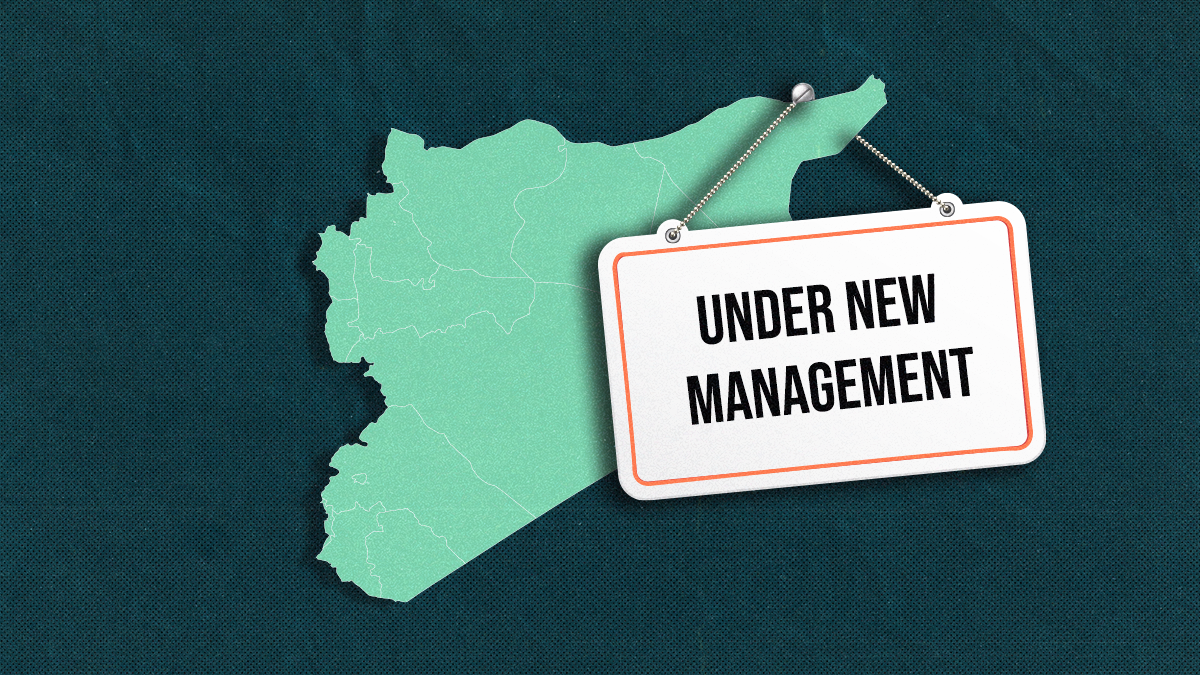The rebels of Hayat Tahrir al-Sham, or HTS, who toppled the Syrian regime of Bashar Assad less than a week ago, have a lot of things to do now: restore order, provide security, manage all the external powers that are jockeying for position in the new Syria.
But while they’re doing all of that they also have to deal with the flags guy.
As a Financial Times piece from Damascus this week describes, HTS rebels have been canvassing various government ministries to figure out who does what in the country they now control. One guy they met runs the Department of Flags. The responsibility of this “department” is, apparently, to hang flags for visiting foreign dignitaries.
Sure, the hanging of flags doesn’t seem like the most pressing item on the agenda right now, but the episode highlights something important: HTS is dealing with the problem that all successful revolutionaries do – now that they run the show, who’s going to … actually run the show?
After all, revolutions are carried out by fighters, but governments are run by bureaucrats. And most hardened militants aren’t particularly good at coordinating trash collection routes, running power plants, processing tax returns, organizing school curricula, or renewing driver's licenses – that is to say, doing all of the mundane things that affect most people’s lives most of the time.
Alongside the grander and more telegenic sweeps of a revolution – the triumphant entries and soaring speeches — there’s the more mundane work of governing well. A Syria broken and weary from more than a decade of war deserves at least as much.
So who’s going to do it? There are tens of thousands of people who worked the institutions of the state under Assad, but whom to keep, whom to fire, and whom to put on trial is the question.
That last part is particularly important in Syria today. All governments are evil in the eyes of the revolutionaries who topple them. But few were as fanatically brutal as the Assad regime and the Baath party institutions that supported it.
Even before the civil war began in 2011, the Soviet-inspired Assad regime had massacred or arrested tens of thousands of people in crackdowns on political opponents or religious movements. After the conflict erupted, Assad’s security forces “disappeared” more than 100,000 people, and tortured at least 15,000 people to death, according to the Syrian Observatory for Human Rights.
A colleague of mine in Damascus described visiting the infamous Sednaya Prison there this week, where he saw a “person-sized hydraulic press” that was, detainees say, used to torture prisoners and crush dead bodies beyond recognition.
The Syrian people will rightly expect someone to pay for those crimes. But how widely to cast the net of responsibility now puts HTS in fraught territory.
If they purge or prosecute too few people, they risk enraging a population that wants justice. Purge too many, and the state institutions can fall apart. Or, worse, those fired can end up forming a new nucleus of aggrieved opposition to the government.
This is what happened in Iraq after 2003, where the US organized a clumsily executed “Debaathification” campaign, purging thousands of officials in a bid to rid the government of any and all Saddam Hussein loyalists.
HTS leader Ahmed al-Shara – aka Abu Mohammed al-Golani, one of GZERO’s top political game changers of 2024 – probably remembers that well: The Islamic State that he was once a part of got a huge boost from Iraqi Baathists who were driven out of their government jobs.
So far, al-Shara has said he plans to close the Assad regime’s most notorious prisons, dissolve its security forces, and prosecute those responsible for human rights abuses.
Hanging over all of this is the question of what kind of government al-Shara really intends to impose. He casts himself as a reformed jihadist interested primarily in the good governance of Syria. But his Salafist pedigree – and the presence of unreformed hardliners under the HTS umbrella – raises justifiable concerns about the treatment of religious minorities, non-religious people, and women in the new Syria.
And that’s where flag guys come back into the picture. When Syria’s new HTS-appointed Prime Minister Mohammed Bashir gave his first public address this week, he stood next to two flags. One was the green, white, and black flag of the anti-Assad opposition. The other was emblazoned with the shahada, the Islamic oath of faith, a flag used by HTS and other Sunni extremist groups.
The backlash about that second flag was immediate among more secular-minded or non-Sunni Syrians, fearful about the prospect of strict Islamic rule. The US, meanwhile, which is weighing whether to lift terror-related sanctions against HTS, has also said that Washington would only recognize the new government of Syria if it respects minority rights.
A day later, Bashir gave an interview to Al-Jazeera. Behind him was just one flag: the Syrian national one. Was this just an easy aesthetic concession to the critics? Or is HTS really going to try to build a reasonably inclusive Syria?
Nobody knows yet. But one thing’s for sure: It’s worth keeping an eye on the flag guys.
